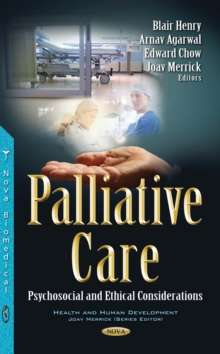
Environmental Health: Poverty, Race and Child Health in the Time of COVID-19 PDF
Edited by I Leslie Rubin
Part of the Health and Human Development series
Description
This book presents a wide ranging selection of nine chapters covering topics of poverty, race and child health in the time of COVID-19.
Chapter One reviews the student projects of the 16th annual Break the Cycle of Children's Environmental Health Disparities program, an annual collaborative interdisciplinary research and training program involving university students in academic tracks focusing on the impact of adverse social, economic, and environmental factors on children's health, development, education, and prospects for their future.
Chapter Two is a broad overview of the prevalence of COVID-19 in the Texas juvenile justice system.
Chapter Three examines the six month outcomes of malnourished children who are enrolled in the Nutritional Therapeutic program in a peri-urban, low-income settlement in the Western Cape, South Africa.
Chapter Four asks the question, "Does early life phthalate exposure mediate racial disparities in children's cognitive abilities?" Chapter Five assesses the knowledge, attitudes, and behaviors of families with a low socioeconomic status in regards to phthalate exposure in children.
Chapter Six examines a comparison of the Neighborhood Deprivation Index and food desert status as environmental predictors of early childhood obesity.
Chapter Seven takes a look at the implications for children's mental health in Durham, North Carolina, on account of equitable access to greenspace during the COVID-19 pandemic.
Chapter Eight reviews neighborhood quality and positive health indicators among urban adolescents.
Chapter Nine looks to the development of evidence-based intervention for teens that have lost a parent through human-centered design, seeking to create a grief group for today's teens.
Information
-
Download - Immediately Available
- Format:PDF
- Publisher:Nova Science Publishers, Inc.
- Publication Date:20/12/2022
- ISBN:9798886974539
Information
-
Download - Immediately Available
- Format:PDF
- Publisher:Nova Science Publishers, Inc.
- Publication Date:20/12/2022
- ISBN:9798886974539









